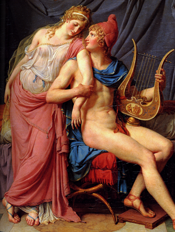
14 Sep 2008
STRAUSS: Die ägyptische Helena — Salzburg 2003
Die ägyptische Helena: Oper in two acts.
Die ägyptische Helena: Oper in two acts.
Die Frau ohne Schatten: Oper in three acts
Die Frau ohne Schatten: Oper in three acts
Der Rosenkavalier (‘The Knight of the Rose’): Komödie für Musik in 3 acts.
Der Rosenkavalier (‘The Knight of the Rose’): Komödie für Musik in 3 acts.
Die Entführung aus dem Serail: Singspiel in 3 Acts.
Die Entführung aus dem Serail: Singspiel in 3 Acts.
Idomeneo, rè di Creta: Dramma per musica in tre atti (K. 366).
Idomeneo, rè di Creta: Dramma per musica in tre atti (K. 366).
Così fan tutte, ossia La scuola degli amanti (K. 588). Opera buffa in two acts.
Così fan tutte, ossia La scuola degli amanti (K. 588). Opera buffa in two acts.
Die Zauberflöte: Singspiel in two acts, K. 620
Die Zauberflöte: Singspiel in two acts, K. 620
La Clemenza di Tito: Opera seria in two acts, K621.
La Clemenza di Tito: Opera seria in two acts, K621.
Le Nozze di Figaro (The Marriage of Figaro): Opera buffa in four acts, K492
Le Nozze di Figaro (The Marriage of Figaro): Opera buffa in four acts, K492
Il dissoluto punito ossia il Don Giovanni (K. 527): Drama giocoso in two acts
Il dissoluto punito ossia il Don Giovanni (K. 527): Dramma giocoso in two acts
Chérubin: Comédie chantée in three acts.

Die ägyptische Helena: Oper in two acts.
Music composed by Richard Strauss. Libretto by Hugo von Hofmannsthal.
First Performance: 6 June 1928, Sächsisches Staatstheater Opernhaus, Dresden (revised version, Salzburg, Festspielhaus, 14 August 1933).
| Principal Roles: | |
| Helena [Helen] of Troy, wife of Menelaus | Soprano |
| Menelas [Menelaus], her husband | Tenor |
| Hermione, their daughter [role omitted in 1933 version] | Soprano |
| Aithra, a sorceress | Soprano |
| Altair, a nomad chieftain | Baritone |
| Da-ud, his son | Tenor |
| The Omniscient Seashell | Contralto |
| Two Servants of Aithra | Soprano, Mezzo-Soprano |
| Three Elves | Two Sopranos, Contralto |
Setting: Egypt, 1193-1184 B.C. (after the Trojan War)
Synopsis:
In the Egyptian palace of the sorceress Aithra, the omniscient mussel (an all-knowing sea-shell left by Aithra’s lover Poseidon) sights a ship bound for Sparta. On board is the raging Menelaus who is determined to kill Helen for her faithlessness and for causing the death of so many Greeks. A storm is conjured up and the couple are shipwrecked near the palace. Aithra, with the help of some magical lotus juice, convinces Menelaus that Helen of Troy was an illusion of the gods, that the real Helen was faithful, and that they should be sent on a second honeymoon to an oasis beneath the Atlas Mountains. Helen and Menelaus are entertained by a desert sheik and his son, but the foursome find themselves trapped in a symbolic re-enactment of events in Troy that led to the death of Paris. As a result of this tragic psychotherapy Helen realises that thanks to Aithra's potion she will always be living as an impostor. She and Menelaus take a draught of remembrance and embrace the reality of their former love, sealed by the appearance of her daughter Hermione.
[Synopsis Source: Boosey & Hawkes]